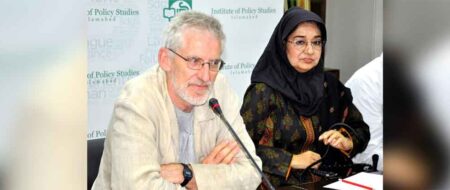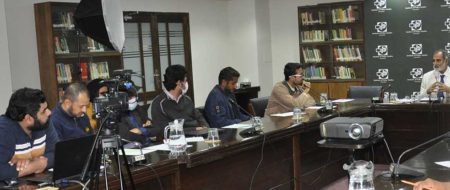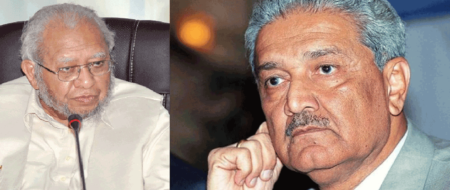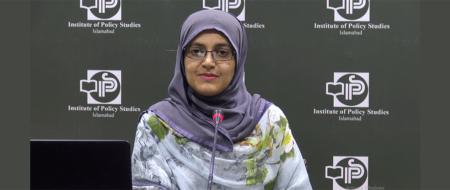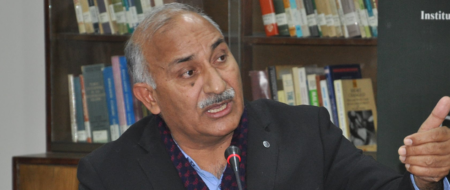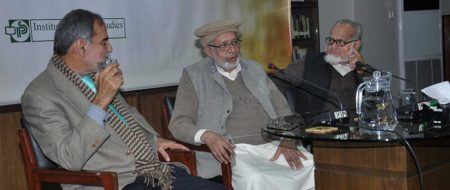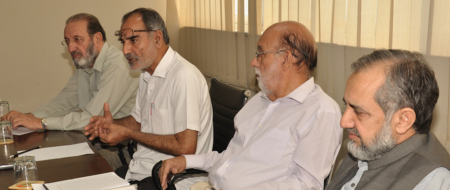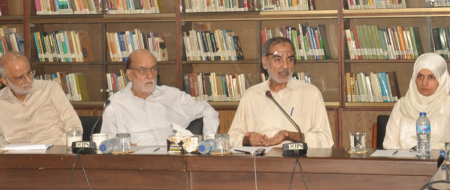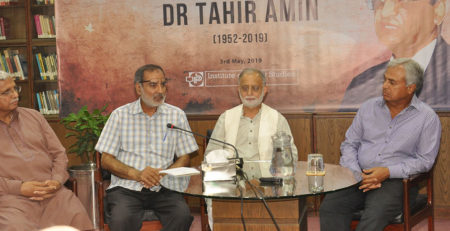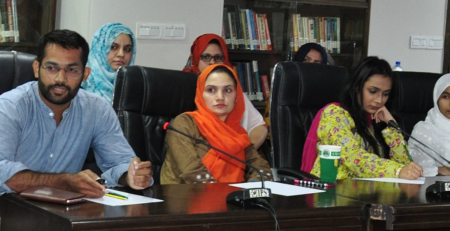Nuclear Security Summit: An Analysis
Fatima Habib, Research Assistant at IPS, analyzed the April 2010 Nuclear Security Summit in an in-house session on May 5, 2010. Discussing the objectives of the two-day summit
 Fatima Habib, Research Assistant at IPS, analyzed the April 2010 Nuclear Security Summit in an in-house session on May 5, 2010. Discussing the objectives of the two-day summit which was attended by the officials of forty-seven countries, Ms. Habib mentioned that the declared aim was to focus the world attention on the threat of nuclear terrorism and unauthorized use of the nuclear weapons.
Fatima Habib, Research Assistant at IPS, analyzed the April 2010 Nuclear Security Summit in an in-house session on May 5, 2010. Discussing the objectives of the two-day summit which was attended by the officials of forty-seven countries, Ms. Habib mentioned that the declared aim was to focus the world attention on the threat of nuclear terrorism and unauthorized use of the nuclear weapons.
However, a few probable objectives, outlined by Fatima, namely giving impetus to non-proliferation regime under NPT; strengthening US credibility as a responsible superpower while upholding its supremacy over nuclear power; expanding US nuclear market by offering peaceful nuclear energy; and garnering support of nuclear and non-nuclear countries towards arms control and disarmament need to be focused as well.
Iran and North Korea, two important countries in the debate of nuclear proliferation, were not invited, nor were their cases discussed in the general summit but President Obama addressed both the issues in bilateral meetings with foreign leaders, including Chinese President, Hu Jintao.
 She also discussed the two-day nuclear conference organized by Iran a week after the Nuclear Security Summit, titled “Nuclear Energy for All, Nuclear Weapons for None” on 17 April 2010. Addressing the conference attended by sixty countries, Iranian President Ahmadinejad called for complete elimination of nuclear weapons and criticized Obama’s declaration that the usage of nuclear weapons against North Korea and Iran was not at all ruled out.
She also discussed the two-day nuclear conference organized by Iran a week after the Nuclear Security Summit, titled “Nuclear Energy for All, Nuclear Weapons for None” on 17 April 2010. Addressing the conference attended by sixty countries, Iranian President Ahmadinejad called for complete elimination of nuclear weapons and criticized Obama’s declaration that the usage of nuclear weapons against North Korea and Iran was not at all ruled out.
While the US expressed its confidence on the safety and security of Pakistan’s nuclear program, it might be following the agenda of the summit “not to point out any country” or the policy of ‘carrot and stick’, Fatima analyzed.
 Discussing the threat of nuclear terrorism, she pointed out “nuclear terrorism might be the worst case scenario, but it was also one of very low-probability,” as the terrorists could inflict severe damage ‘more easily with readily available explosives’. “The real threat to the security of the world is the risk of nuclear war that can only be prevented through nuclear disarmament,” she concluded.
Discussing the threat of nuclear terrorism, she pointed out “nuclear terrorism might be the worst case scenario, but it was also one of very low-probability,” as the terrorists could inflict severe damage ‘more easily with readily available explosives’. “The real threat to the security of the world is the risk of nuclear war that can only be prevented through nuclear disarmament,” she concluded.



